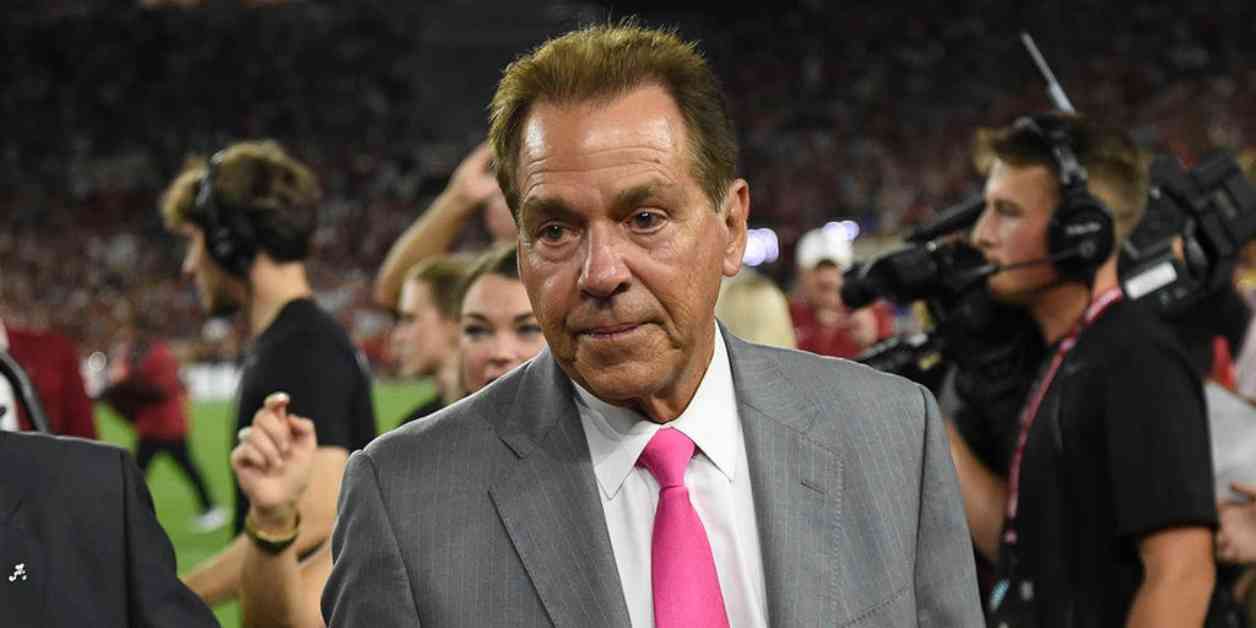College football players faking injuries to gain an advantage during games has become a controversial topic this season. The Ole Miss Rebels recently faced accusations of players feigning injuries before a crucial game against the LSU Tigers. This trend is not unique to Ole Miss, as other teams have been suspected of employing similar tactics in recent years.
Former Alabama Crimson Tide head coach Nick Saban expressed strong disapproval of this practice during a segment on “College GameDay.” He emphasized the importance of integrity in the game and suggested that players who fake injuries often do so at the direction of their coaches to slow down the pace of the game. Saban pointed out that in the past, injured players were required to leave the field, but rule changes now allow them to stay down, leading to potential abuse of the system.
Saban proposed the implementation of a “flop rule” that would penalize teams whose players fake injuries by charging them a timeout. He acknowledged that it can be challenging for officials to determine the legitimacy of an injury in the heat of the moment but stressed the need for accountability in addressing this issue.
South Carolina head coach Shane Beamer also weighed in on the controversy, questioning the timing of Ole Miss’ injuries in relation to key moments in games. He highlighted instances where Ole Miss players appeared to go down with injuries following successful plays by the opposing team, raising suspicions about the legitimacy of their actions.
In response to the scrutiny, Ole Miss issued a statement acknowledging the discussion surrounding feigned injuries in college football. The school indicated that they have provided medical information to the National Coordinator for Football Officiating for review and have updated the SEC office on the matter. They also emphasized their commitment to ensuring that their program operates in accordance with the rules and standards of the sport.
The debate over players faking injuries in college football underscores the broader issue of sportsmanship and fair play in competitive athletics. As teams seek any advantage they can gain on the field, it is essential to maintain the integrity of the game and uphold the spirit of fair competition. The calls for increased accountability and penalties for deceptive practices reflect a collective effort to preserve the authenticity and honor of college football.




